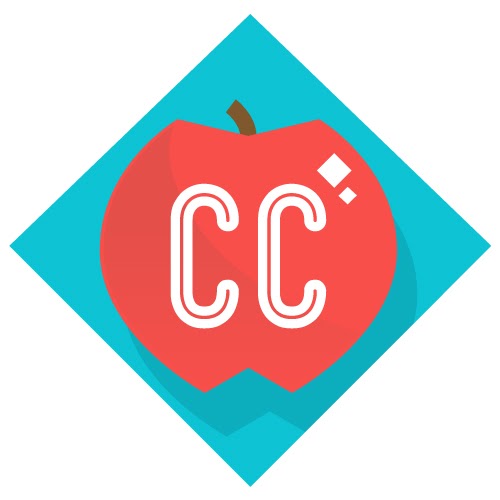2021-06-05
[public] 142K views, 12.2K likes, 126 dislikes audio only
In 1688, in Pennsylvania, a group of four men created the Germantown Petition, which made the case that slavery was immoral and that it was inconsistent with Christian beliefs in general, and Quaker beliefs specifically. While the petition wasn't ultimately adopted by the Quaker hierarchy, examining the document and its authors' goals gives us a better insight into slavery in the colonies and some of the earliest organized attempts at abolition.
Clint's book, How the Word is Passed is available now! https://bookshop.org/a/3859/9780316492935
Sources and References
Ira Berlin, “Slavery, Freedom, and Philadelphia’s Struggle for Brotherly Love, 1685 to 1861” in Richard Newman and James Mueller, eds., Antislavery and Abolition Philadelphia: Emancipation and the Long Struggle for Racial Justice in the City of Brotherly Love (Baton Rouge: Louisiana State University Press, 2011).
Ira Berlin, Many Thousands Gone: The First Two Centuries of Slavery in North America (Cambridge: Belknap Press of Harvard University Press, 1998).
Robin Blackburn, The American Crucible: Slavery, Emancipation, and Human Rights (New York and London: Verso Books, 2015).
Katherine Gerbner, “Antislavery in Print: The Germantown Protest, the ‘Exhortation,’ and the Seventeenth-Century Quaker Debate on Slavery,” Early American Studies, vol. 9, no.3 (Fall 2011): 552-75.
—- Christian Slavery: Conversion and Race in the Protestant Atlantic World. Philadelphia: University of Pennsylvania Press, 2018.
Richard Newman and James Mueller, eds, Antislavery and Abolition Philadelphia: Emancipation and the Long Struggle for Racial Justice in the City of Brotherly Love. Baton Rouge: Louisiana State University Press, 2011.
Watch our videos and review your learning with the Crash Course App!
Download here for Apple Devices: https://apple.co/3d4eyZo
Download here for Android Devices: https://bit.ly/2SrDulJ
Crash Course is on Patreon! You can support us directly by signing up at http://www.patreon.com/crashcourse
Thanks to the following patrons for their generous monthly contributions that help keep Crash Course free for everyone forever:
Vincent, Emilee Murphy, Michael Wang, Jordan willis, Krystle Young, Michael Dowling, Alexis B, Rene Duedam, Burt Humburg, Aziz, Nick, DAVID MORTON HUDSON, Perry Joyce, Scott Harrison, Mark & Susan Billian, Junrong Eric Zhu, Alan Bridgeman, Rachel Creager, Jennifer Smith, Matt Curls, Tim Kwist, Jonathan Zbikowski, Jennifer Killen, Sarah & Nathan Catchings, Brandon Westmoreland, team dorsey, Trevin Beattie, Divonne Holmes à Court, Eric Koslow, Indika Siriwardena, Khaled El Shalakany, Shawn Arnold, Siobhán, Ken Penttinen, Nathan Taylor, William McGraw, Andrei Krishkevich, Sam Ferguson, Eric Prestemon, Jirat, TheDaemonCatJr, Wai Jack Sin, Ian Dundore, Jason A Saslow, Justin, Jessica Wode, Mark, Caleb Weeks
__
Sources and References
-Ira Berlin, “Slavery, Freedom, and Philadelphia’s Struggle for Brotherly Love, 1685 to 1861” in Richard Newman and James Mueller, eds., Antislavery and Abolition Philadelphia: Emancipation and the Long Struggle for Racial Justice in the City of Brotherly Love (Baton Rouge: Louisiana State University Press, 2011).
-Ira Berlin, Many Thousands Gone: The First Two Centuries of Slavery in North America (Cambridge: Belknap Press of Harvard University Press, 1998).
-Robin Blackburn, The American Crucible: Slavery, Emancipation, and Human Rights (New York and London: Verso Books, 2015).
-Katherine Gerbner, “Antislavery in Print: The Germantown Protest, the ‘Exhortation,’ and the Seventeenth-Century Quaker Debate on Slavery,” Early American Studies, vol. 9, no.3 (Fall 2011): 552-75.
—- Christian Slavery: Conversion and Race in the Protestant Atlantic World. Philadelphia: University of Pennsylvania Press, 2018.
-Richard Newman and James Mueller, eds, Antislavery and Abolition Philadelphia: Emancipation and the Long Struggle for Racial Justice in the City of Brotherly Love. Baton Rouge: Louisiana State University Press, 2011.
Want to find Crash Course elsewhere on the internet?
Facebook - http://www.facebook.com/YouTubeCrashCourse
Twitter - http://www.twitter.com/TheCrashCourse
Tumblr - http://thecrashcourse.tumblr.com
Support Crash Course on Patreon: http://patreon.com/crashcourse
CC Kids: http://www.youtube.com/crashcoursekids
#crashcourse #history #abolition
/youtube/video/XT8q6cYsVpc?t=0
/youtube/video/XT8q6cYsVpc?t=72
/youtube/video/XT8q6cYsVpc?t=183
/youtube/video/XT8q6cYsVpc?t=282
/youtube/video/XT8q6cYsVpc?t=418
/youtube/video/XT8q6cYsVpc?t=502
/youtube/channel/UCX6b17PVsYBQ0ip5gyeme-Q
youtube.com/channel/UCwTZ-JLF5FQ3EmQ2nPaS-lg
https://www.patreon.com/crashcourse
/youtube/video/xPx5aRuWCtc

